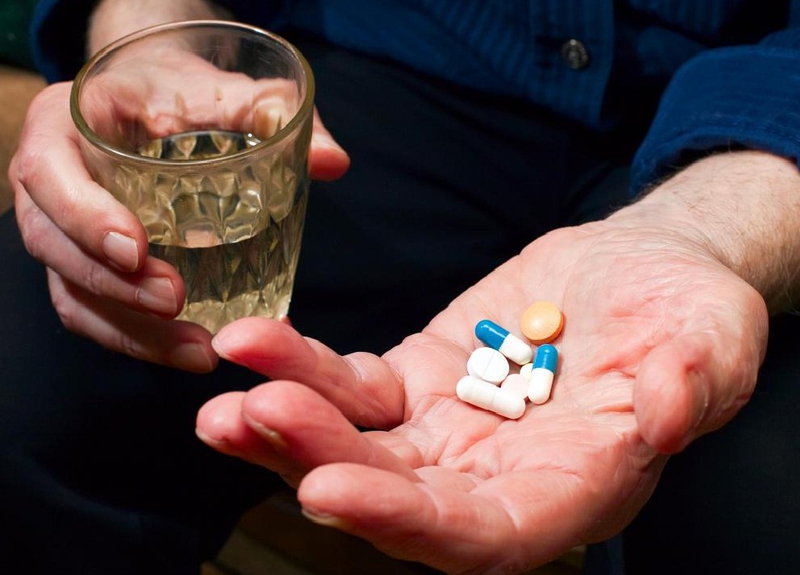Amoxicillin is a penicillin antibiotic that has wide uses, but mostly for the treatment of bacteria. It is commonly used for various infections – skin, ear, sinuses, many urinary tract and respiratory infections. Patients who are about to undergo a dental procedure are also advised to take amoxicillin to prevent infections from happening. It is also taken with other drugs for treatment of other types of infections.
Just like with other prescription drugs and antibiotics, it is important that you should take amoxicillin as prescribed by your physician and follow the recommended dosage by heart. This is to ensure that you don’t get negative side effects or adverse reactions. With more cautions, some of you may have this question in mind: Can I combine amoxicillin and alcohol? Read on to find the answer if it is acceptable.

Can You Drink Alcohol While Taking Amoxicillin?
Whilst it is common that medical practitioners recommend their patients to avoid drinking alcohol while on medication, this does not stand true for all drugs. It is a common misconception that antibiotic, amoxicillin included, may cause interaction when taken with alcohol.
The truth of the matter is there are no known interactions between these two.
One study conducted shows that the alcohol does not influence the absorption of amoxicillin. It has, however, an influence in the rate of metabolism.
In another study, eight healthy participants were given the same dose of amoxicillin along with alcohol. After taking the amoxicillin and alcohol, volunteers had their blood samples taken and levels of amoxicillin in their body were evaluated and measured. The study revealed that there was no direct effect to the pharmacokinetic of amoxicillin when taken with alcohol. Though there is a slight effect on its rate of absorption, the amount is not enough to hamper its efficiency.
These studies show that patients who are taking amoxicillin are safe to drink alcohol as well.
However…
Upon hearing this good news, don’t hit the bar directly.
Though it has been established that alcohol does not make amoxicillin less effective or may result to adverse reactions, there are still plenty of reasons why you should avoid taking alcohol.
First, alcohol can slow down or delay your recovery from illness and can also reduce your energy level. It is wise to wait until you have fully recuperated or has completed your antibiotic treatment before indulging yourself in alcohol again.
In addition, alcohol may make the side effects of both antibiotic and alcohol worse which can be dangerous. The side effects of antibiotic varies per drug, however, the most common ones are sleepiness, nausea, lightheadedness, dizziness and diarrhea. Alcohol, on the other hand, can cause digestive problems such as diarrhea, stomach pains and ulcer, tiredness and upset stomach. A combination of amoxicillin and alcohol can further aggravates these symptoms.
Furthermore, the side effects of alcohol may have the tendency to over-shadow the side effects of amoxicillin which may lead to potential health risks. To avoid such problems from occurring, your healthcare provider will ask you to limit the intake of alcohol.
Other Reasons Why Alcohol Should Be Avoided
Aside from the reasons stated above, it is also wise to stay away from alcohol if you are:
A patient with severe bacterial infection
A patient that is taking amoxicillin along with other medications
A patient that has other underlying medical conditions
To ensure that any potential risks or negative side effect may not occur, always consult with your physician first whether your present condition is contraindicated with alcohol. Though there is no clear evidence that amoxicillin and alcohol will increase your health risk, it is wise to always be on the safe side.
When to Avoid Drinking Alcohol Completely
Drinking alcohol in moderation when taking most common antibiotics, such as amoxicillin, will unlikely to cause any health problems. 14 units a week is the advisable amount of alcohol that you can take to reduce the risks associated with alcohol.
On the contrary, avoid drinking alcohol at all if you are taking these medications:
Metronidazole – antibiotic used in the treatment of vaginal or dental infections, pressure sores and leg ulcers
Tinidazole – used to help clear the Helicobacter pylori bacteria from the gut along with other conditions treated by metronidazole
Serious conditions may occur when you drink alcohol when taking these two medications. Symptoms of the reaction may include headaches, breathlessness, skin flushing, chest pain, lightheadedness, vomiting and nausea and irregular or increased heartbeat.
To avoid these risks, it is recommended that you should totally avoid drinking alcohol with these medications. Your doctor will advise you to continue avoiding alcohol for 72 hours after you’ve stopped taking tinidazole and 48 hours after you’ve stopped taking metronidazole.
Now your question has been answered.
All in all, you can drink alcohol in moderation while taking amoxicillin, however, it would still be best to abstain and give your body enough time and rest to fully recuperate.
View All Comments /Add Comment